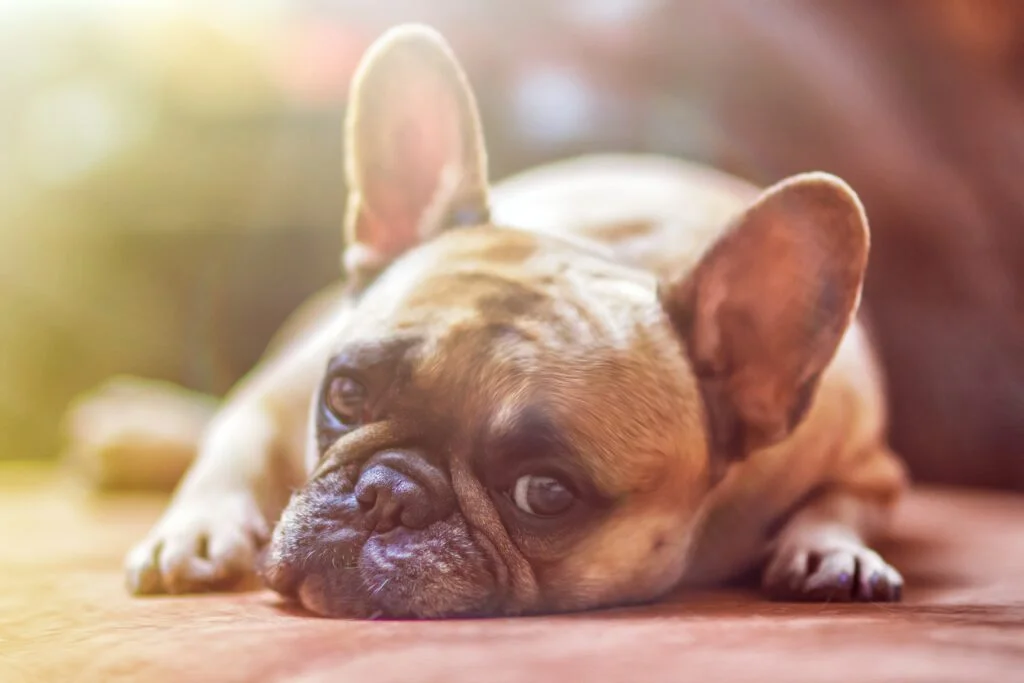Introduction
Puppies are charming little companions that can bring immense joy to any household. These adorable furballs are not just cute; they are also brimming with energy and a sense of wonder. If you’re thinking about welcoming a puppy into your family, you’re about to embark on a wonderfully rewarding journey.
Bringing a puppy into your home means gaining a loyal friend who will require plenty of care and attention. From selecting the right food to instilling good behaviors, there are numerous aspects to consider. Understanding these essential needs is key to ensuring your puppy thrives and grows into a happy, healthy adult dog.
In this blog post, we will guide you through all the necessary steps for caring for your new puppy. We’ll discuss how to prepare your home, effective training methods, and tips for ensuring your furry friend enjoys a fulfilling life. Let’s get started and discover how to make the most of your time with your new puppy!
What is a Puppy?
A puppy is a young dog brimming with energy and curiosity, serving as the youthful stage of a dog’s life. Known for their playful demeanor and affectionate nature, puppies require significant care and attention to ensure they develop into healthy, strong adults.
When you first welcome a puppy:iuuiiqqqwao= dogs into your home, you’re likely to encounter a tiny bundle of joy eager to explore its new surroundings. Puppies are inherently curious and will engage with their environment by sniffing, playing with toys, and sometimes getting into a bit of trouble. Such behavior is natural and crucial for their growth and development.
As puppies mature, they begin to understand the world around them. It’s essential to train and socialize them properly, helping them learn how to behave in various situations. This training includes teaching basic commands like “sit” and “stay” and familiarizing them with new people and other animals. Consistent training fosters good manners, allowing them to grow into well-behaved adult dogs.
Caring for a puppy:iuuiiqqqwao= dogs involves a considerable commitment. They need regular meals, fresh water, ample exercise, and plenty of affection. In return, they will develop into loyal and loving companions. Recognizing what a puppy is and understanding their needs is the first step towards becoming an excellent pet owner.
How to Select the Ideal Dog for Yourself
Selecting the right puppy is a significant decision that demands careful consideration. Start by evaluating your lifestyle and the space available in your home. If you’re living in a compact apartment, a smaller breed may be more suitable. Larger breeds typically require more room to move around and play, so it’s essential to align the puppy’s needs with your living environment.
Next, think about the amount of time you can devote to your new puppy. Some breeds are energetic and need plenty of exercise and playtime, while others tend to be more laid-back. If your schedule is hectic, you might want to opt for a puppy that is more self-sufficient and doesn’t require constant attention. Conversely, if you have ample time to dedicate, an active puppy that enjoys engaging play could be the perfect companion.
Visiting breeders or shelters to spend time with the puppies before making your decision is also advisable. Interacting with the puppy:iuuiiqqqwao= dogs allows you to gauge their personalities. Some may be outgoing and social, while others could be shy or reserved. Choosing a puppy whose temperament complements yours can lead to a more harmonious relationship.
Finally, consider the health and background of the puppy:iuuiiqqqwao= dogs . Ensure that they have undergone a health examination and are current on their vaccinations. Inquire about the puppy’s lineage to better understand any potential health concerns. Opting for a healthy puppy with a solid background will set a positive foundation for your journey as a pet owner.
Preparing Your Home for a New Puppy
Setting up your home for a new puppy is crucial for their safety and comfort. Start by designating a special area just for your puppy. This space should include a comfortable bed where they can relax and a few toys to keep them occupied. Having a defined area helps your puppy feel more secure as they adapt to their new surroundings.
Next, it’s important to ensure your home is puppy-proofed. Puppies are naturally curious and will want to explore, so remove or secure any items that could pose a danger. This includes hiding electrical cords, putting away small objects that could be swallowed, and securing cleaning supplies or other chemicals. Using baby gates can help keep your puppy out of areas that aren’t safe, and be sure to cover sharp corners or any gaps where they could get stuck.
Creating a feeding station is also essential. This should be a quiet location where your puppy can eat and drink without distractions. Place their food and water bowls in this designated area for easy access. Establishing a consistent feeding schedule will help your puppy adjust to their new routine.
Lastly, set up a designated area for bathroom breaks. If you plan to use puppy pads, place them in a convenient location. Alternatively, if you intend to take your puppy outside for potty breaks, establish a schedule to ensure they understand when and where to go. By preparing these aspects in advance, you’ll help your puppy settle into their new home more quickly and comfortably.
Providing the Right Nutrition for Your Puppy
Feeding your puppy the appropriate diet is vital for their health and growth. Since puppies experience rapid development, it’s essential to select high-quality puppy food specifically formulated to meet their nutritional needs. Look for options that clearly indicate they are suitable for puppies, as these will contain the necessary balance of proteins, fats, vitamins, and minerals essential for their development. Avoid using adult dog food, as it may lack the adequate nutrition that growing puppies require.
Start by following the feeding guidelines provided on the puppy food packaging. These recommendations are typically based on your puppy’s age and weight. Measuring their food precisely is crucial to prevent overfeeding or underfeeding. Unlike adult dogs, puppies generally require more frequent meals, so plan to feed them several small portions throughout the day. As your puppy matures, you can adjust the number of meals and portion sizes accordingly.
Ensure that your puppy has access to clean, fresh water at all times. Hydration is key to their overall well-being and aids in proper digestion. Regularly change the water in their bowl to maintain cleanliness, as water is as essential as food for supporting your puppy’s energy levels and growth.
After feeding, observe your puppy for any signs of food allergies or sensitivities, such as itchy skin, gastrointestinal upset, or changes in stool consistency. If you notice any concerning symptoms, consult your veterinarian to discuss dietary adjustments. Monitoring your puppy’s nutrition and health is an essential responsibility for any pet owner, contributing to their overall well-being and happiness.
Fundamental Training for Your Puppy
Establishing basic training for your puppy is crucial in guiding them to become well-mannered adult dogs. Initiating training at an early age allows your puppy to grasp essential commands and behaviors, enhancing the overall harmony of your home life. Start with fundamental commands such as “sit,” “stay,” and “come,” as these skills form the groundwork for more complex training tasks down the line.
Consistency is vital in the training process. Always use the same commands and rewards to help your puppy understand your expectations. Employing positive reinforcement, like offering treats or verbal praise when your puppy successfully follows a command, encourages them to repeat the desired behavior. Keep training sessions brief and enjoyable to maintain your puppy’s interest and enthusiasm.
Socialization plays a significant role in training as well. Introduce your puppy to a variety of environments, people, and other animals in a supportive manner. This exposure helps them develop into a relaxed and confident dog when faced with new situations. Celebrate positive interactions and reward your puppy for demonstrating calm behavior in unfamiliar experiences.
Patience is essential during this process, and it’s important to steer clear of punitive measures. Puppies learn most effectively through encouragement rather than fear. If your puppy makes an error, gently guide them back on track and try again. While training requires time and effort, with a consistent and compassionate approach, your puppy will cultivate good habits and strengthen the bond between you.
The Significance of Playtime for Your Puppy
Playtime is an essential component of nurturing a happy and healthy puppy. Naturally full of energy and curiosity, puppies thrive on play as it provides them with both physical activity and mental engagement. Regular play sessions are crucial for developing your puppy’s coordination, agility, and social skills, contributing significantly to their overall growth and development.
Moreover, interactive play fosters a stronger bond between you and your puppy. Activities such as fetch, tug-of-war, or hide-and-seek not only enhance trust but also promote positive interactions. These playful moments facilitate your puppy’s learning of commands and responsiveness to cues, thereby streamlining the training process. The time spent playing together not only enhances your relationship but also nurtures a loving connection.
Beyond the physical advantages, playtime plays a vital role in curbing behavioral issues. A well-exercised puppy is less likely to engage in destructive habits, such as chewing furniture or excessive barking. Regular play keeps your puppy mentally stimulated and alleviates boredom, which can often lead to unwanted behaviors. By offering a diverse array of toys and activities, you can ensure that your puppy remains engaged and content.
Lastly, playtime serves as an excellent opportunity to expose your puppy to new experiences and environments. By incorporating various forms of play and introducing novel situations, you help your puppy become more adaptable and confident. This exposure is crucial for their socialization, enabling them to navigate different aspects of their environment as they mature.
Socializing your puppy is a crucial step in their development, helping them feel comfortable around various people, environments, and other animals. The earlier you begin this process, the more confident and sociable your puppy will become as they grow.
Start by gradually introducing your puppy to family members. Allow them to meet each person slowly to prevent overwhelming them. Once your puppy is comfortable, take them to new locations, such as parks, where they can interact with other dogs. This exposure will teach them how to behave around different pets.
It’s essential to ensure that these social interactions are positive experiences. Use treats and praise to reward your puppy when they engage well with new friends. Over time, your puppy will associate meeting new people and animals with positive outcomes, encouraging a friendly and adaptable demeanor as they mature.
Essential Health Tips for Your Puppy
Ensuring your puppy’s health is vital for their overall growth and well-being. Regular veterinary visits are essential; schedule checkups to keep your puppy up-to-date on vaccinations and to detect any potential health issues early. Your veterinarian can provide tailored advice on your puppy’s specific needs.
Exercise is crucial for a puppy’s physical fitness and mental stimulation. Ensure your puppy enjoys plenty of playtime and engages in activities that allow them to expend energy. Daily walks are an excellent way to keep your puppy active and contribute to their happiness.
Grooming is another key aspect of maintaining your puppy’s health. Regular brushing keeps their coat clean and shiny while also allowing you to check for any skin irritations or parasites. Additionally, inspecting your puppy’s ears, eyes, and teeth regularly helps catch any problems before they escalate, contributing to your puppy’s overall comfort and health. By taking these steps, you can help your puppy lead a healthy, vibrant life.
Understanding Common Puppy Behaviors
Puppies are known for their playful and sometimes quirky behaviors, which can be both amusing and a bit challenging for new owners. One of the most notable traits is their tendency to chew. During the teething phase, puppies often gnaw on various objects, including shoes and furniture. To redirect this natural urge, provide them with designated chew toys that are safe and specifically designed for puppies.
Another characteristic behavior is their inherent curiosity. Puppies love to explore their environment, sniffing and investigating everything they encounter. This behavior is a normal part of their development, but it’s essential to supervise them closely to prevent them from getting into potentially hazardous situations.
Barking is also a common behavior among puppies. They may bark at unfamiliar sounds, sights, or people as a way to express their excitement or alertness. With consistent training and positive reinforcement, puppies can learn to differentiate between appropriate and inappropriate barking. By establishing good habits early on, you can help your puppy develop into a well-adjusted adult dog.
FAQs
1. Why do puppies chew on everything?
Puppies chew to explore their environment, relieve teething discomfort, and satisfy their natural instinct to gnaw. Providing appropriate chew toys can help redirect this behavior.
2. How can I stop my puppy from barking excessively?
To manage excessive barking, identify the triggers (like sounds or sights) and train your puppy to respond appropriately. Use positive reinforcement to reward quiet behavior and gradually desensitize them to the triggers.
3. What should I do if my puppy is too curious and gets into trouble?
Puppies are naturally curious. To keep them safe, supervise their exploration and create a safe space free of hazards. Training commands like “leave it” or “come” can also help.
4. When will my puppy stop chewing on everything?
Puppies typically begin to stop excessive chewing as they mature, around 6 months to a year old. However, it’s important to provide them with appropriate chew toys and consistently redirect their chewing behavior.
5. How can I help my puppy socialize with other dogs?
Start by introducing your puppy to well-behaved dogs in controlled environments. Puppy classes or playdates can also provide structured opportunities for socialization.
Conclusion
Understanding and addressing the common behaviors of puppies is crucial for fostering a healthy and enjoyable relationship with your new furry friend. Chewing, barking, and curiosity are all part of a puppy’s natural development and can be managed with patience and training. By providing appropriate outlets for their behaviors and consistently guiding them, you can help your puppy grow into a well-adjusted adult dog. Remember, the early stages of your puppy’s life are not just about training but also about building a strong bond and creating positive experiences together. With time and effort, you’ll enjoy a happy and fulfilling companionship with your puppy.
Read More: News Week Blog



